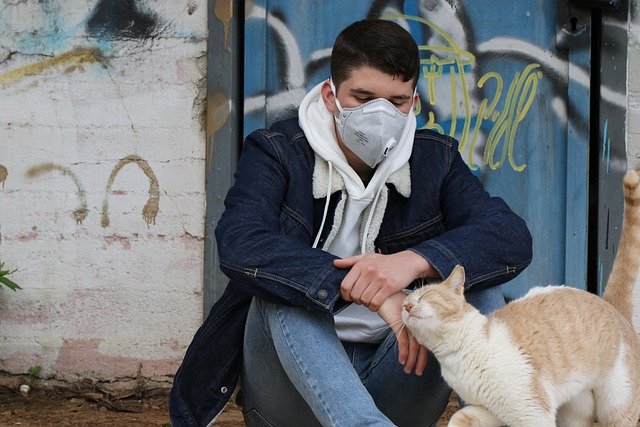COVID-19 remains a mystery. Already transformed into the great pandemic of the 21st century, the virus continues to circulate around the world without us being able to stop it.
For now, from what we have been able to live during these past ten months of 2020, social distancing, use of facemasks and good hand hygiene appears to slow down its transmission. According to a recent study, it is believed that the virus lives on our skin longer than previously thought.
Since the first cases in Wuhan in late December 2019, scientists have been trying to explain how COVID-19 spreads. The studies and analyses are trying to find an answer that appears to be illusive to all. At first, experts were convinced that the main source of contagion was directly related to surface contact, so gloves were recommended while stepping out of the home. But over the months, evidence indicates that the key to transmission is aerosols.
Obviously, the spread by aerosols is not something new, but the theory has gained further momentum in recent days that virus droplets suspended in the air are the main cause of contagions. These suspended droplets, which form as we cough, sneeze, or even speak, can be deactivated, if not accumulated excessively in enclosed spaces.
Despite this, the contagion by surfaces must continue to be monitored. In fact, one of the first studies that were carried out in this regard was focused on how long the COVID-19 lasted on some elements: thus, it was concluded that it lasted up to 4 hours on copper, 24 hours on cardboard and up to 72 hours on plastic and steel.
But do we know how long the virus lasts on the skin? Not until now, a team of Japanese researchers have managed to answer the question. And the answer is up to nine hours.
These scientists used skin samples from deceased people to conclude how long SARS-CoV-2 lasts on human skin. Thus, according to their study published in the journal Clinical Infectious Diseases, the virus lasts on human skin for 9.04 hours, while the flu virus lasts for only 1.82 hours. To be more precise, they even mixed the virus with human mucus, with the aim of simulating the viral particles that are released when coughing or sneezing: in this case, the virus lasted up to 11 hours.
But the good news came with the answer to the question ‘how long it takes to deactivate it from our skin’: after applying an 80% ethanol-based hand sanitizer, the virus was completely inactivated from the skin within 15 seconds of applying it.
Although the covid-19 is capable of living on our skin for about 9 and 11 hours, depending on the viral load it has, a correct hand washing and sanitization can completely deactivate and inoculate the virus.
“Proper hand hygiene leads to rapid viral inactivation of SARS-CoV-2 and may reduce the high risk of contact infections. This study shows that SARS-CoV-2 may have an increased risk of contact transmission than influenza because the former is much more stable on human skin than the latter. These findings support the hypothesis that proper hand hygiene is important for preventing the spread of SARS- CoV-2″, the study authors explain in their statement.
In subsequent investigations, same experts are trying to find out the exact infectious dose of SARS-CoV-2 by which an infection can occur: knowing the amount of virus particles that are needed for someone to get sick can be a fundamental step in efforts to curb its spread, thus, return to the most absolute normality, which seems far away at the moment.
